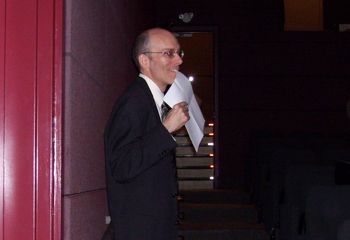 In 1973 Lyn Chevli and I produced a comic, Abortion Eve, about the experiences of five different women who were pregnant and seeking abortions. Since that time, the details of abortion care have changed little but the politics of abortion have gone ballistic.
In 1973 Lyn Chevli and I produced a comic, Abortion Eve, about the experiences of five different women who were pregnant and seeking abortions. Since that time, the details of abortion care have changed little but the politics of abortion have gone ballistic.
With all the recent fuss about the national budget, I was overjoyed when various members of Congress tried to badmouth Planned Parenthood, thus giving the non-profit plenty of publicity. Planned Parenthood provides a full range of family planning services - why should anyone get upset about that? Not everyone will agree with me, but I think Planned Parenthood has saved many thousands of lives, specifically adult women. Let's be clear: nobody likes abortion. But the majority of people in this country are in favor of having it, so you might say that people are generally pro-choice.
Since 1915, Planned Parenthood has been taking up the slack in family planning services not offered by private doctors for one reason or another. I first ran into this exact problem back in 1959 when I asked my obstetrician for birth control advice. Being a Catholic and a kind man, he referred me to another doctor. Not all women are so lucky.
Every day, women visit Planned Parenthood for all kinds of reasons: mammograms, venereal disease tests, Pap smears, pregnancy advice. Planned Parenthood even offers vasectomies for men. A few Planned Parenthood clinics also provide abortions because, for the past several decades, many qualified gynecologists have been threatened if they are known to perform them. Several doctors have been killed.
Here’s some history: in 1967, Ronald Reagan, as governor, signed the law making therapeutic abortion legal in California. “Therapeutic” meant “necessary to preserve the woman’s life or health, mental or physical.” At that time Reagan was a practical guy, believing that it was cheaper to abort a fetus than raise a child to age 18 on welfare. He later changed his mind, probably out of political necessity.
In 1973, the Supreme Court ruled that abortions were legal throughout the United States. The ruling had an unforeseen consequence: abortion became useful as a political tool. Doctors were increasingly unwilling to face the hassle created by outspoken religious right-wing people inside as well as outside the medical community. They also didn’t want to deal with poor people in their private practices. Many hospitals, required by the Supreme Court to provide abortions, refused to do so. Planned Parenthood began providing abortion services in areas that were underserved by the medical community.
In 1970, when I was an adult college student in California, I discovered to my horror that I was pregnant even though I used an intrauterine device for birth control. I had no idea what to do. I was poor, I already had a twelve-year-old, I couldn't possibly handle another child. I admit that I am not well suited for parenthood. I confessed my problem to a friend, knowing that a few months before she had also had an unplanned pregnancy.
My friend listened carefully to my tale of woe and suggested that I contact Planned Parenthood.
Planned Parenthood verified that I was indeed pregnant and a counselor helped me sort out what I would do about my unwanted pregnancy. It turned out I was eligible for welfare, either to become a future welfare mom or to abort my pregnancy. The state would finance me, whatever my choice, under the auspices of Aid to Families with Dependent Children.
Before I could obtain an abortion, I had to have an interview with a psychiatrist to be sure that I qualified for the procedure under state law. After an hour's interview, the psychiatrist announced that I would not be eligible. He said "Mentally, you are fit to be a mother."
Shocked, I looked him in the eye and replied "All right then, I'll do it myself." He immediately wrote the letter verifying that I was a fit candidate for an abortion on the grounds that I threatened to kill myself. "Grave bodily harm" was the term he used.
Thus began my radicalization. I was astounded that I had to prove to the state that I was suicidal, when all I wanted was an abortion, clean and safe.
I never once regretted my decision or felt guilty, even though it was tough at the time. The female "pro-life" protesters we see so often on the news either don't know what it is like to be pregnant when you don't want to be or have had an unwanted pregnancy and didn't get proper counseling. Or maybe they just believe that women's lot is to suffer. (In fact, most of the anti-abortion protesters are men, and we can assume their experience with being pregnant is minimal.)
A couple of weeks after the visit with the psychiatrist, I went to the hospital that Planned Parenthood had recommended. When I awoke after the procedure, the woman in the next bed asked why I was in the hospital.
The anesthesiologist must have given me some kind of truth serum, because I told this stranger, "I just had a legal abortion!"
Joyce Farmer is best known for co-creating the Tits ‘n Clits comics anthology in the 1970s. Her graphic memoir Special Exits was a Fall 2010 release from Fantagraphics Books. She lives in Laguna Beach, CA.






